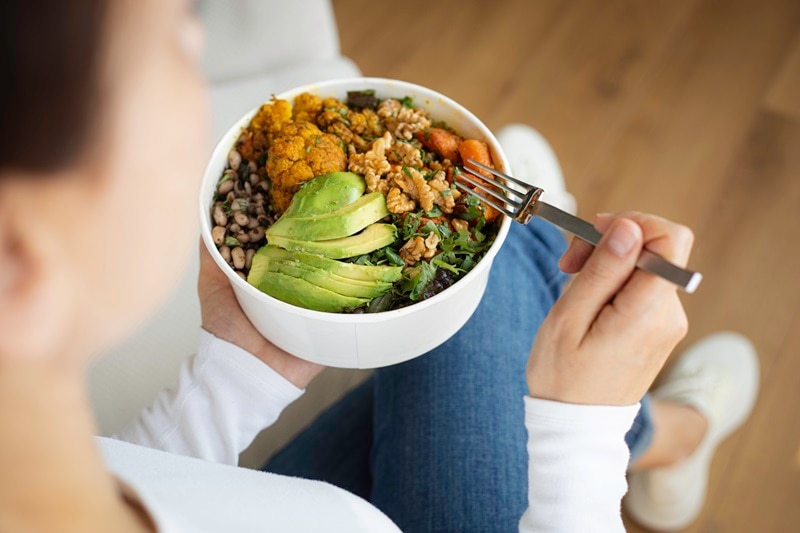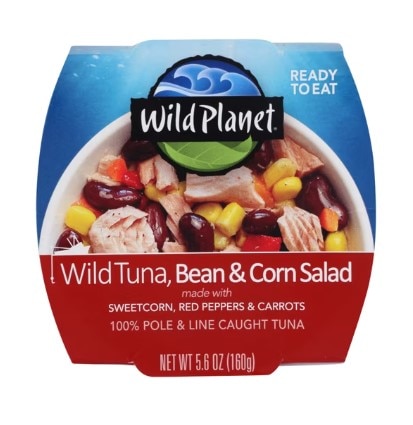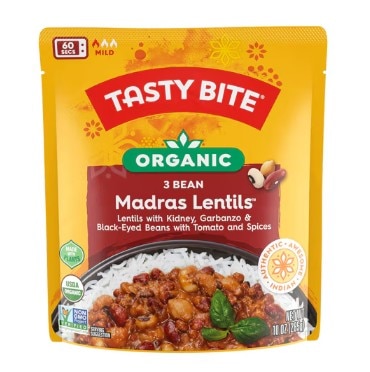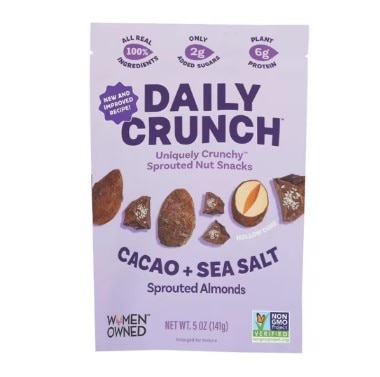Protein is not just a buzzword in the fitness world; it’s an important nutrient that plays a key role in maintaining your strength, health and energy levels. Yet, surprisingly, many people, particularly as they age, might be skimping on this essential nutrient. Let’s explore why protein is a big deal, the telltale signs you’re not getting enough protein and how you can make sure you’re hitting your protein targets in your diet.
Protein is like the magical building blocks for your body, working tirelessly to keep your muscles in tip-top shape, your immune system strong and your energy levels high. Here’s why protein deserves a round of applause.
- Building and repairing tissues: Protein is your body’s construction crew, essential for the growth and repair of muscle, skin and bones.
- Enzyme and hormone production: Protein is the raw material for many enzymes and hormones, driving important biochemical processes that keep you ticking.
- Supporting immune health: Protein is a key player in producing antibodies, the defenders that fight off infections and keep your immune system in fighting form.
- Providing energy: When carbs are running low, protein steps in to fuel your body, ensuring you stay energized.
- Maintaining a healthy weight: Protein is your secret weapon against hunger, keeping you full and reducing those pesky cravings.
7 Signs You’re Not Getting Enough Protein
The RDA (Recommended Dietary Allowance) for protein is approximately 0.8 grams per kilogram (.36 grams per pound) of body weight for the average adult. However, this requirement can vary based on age, sex and activity level. Older adults, athletes, pregnant and breastfeeding women, and individuals recovering from injury and illness may require more protein.
Without adequate protein intake, your body may display various symptoms that indicate deficiency. However, these symptoms could also be related to other clinical conditions, so it’s important to consult with your doctor for proper evaluation. Here are some signs you may not be getting enough protein.
- Muscle loss or weakness: A lack of protein can lead to muscle wasting and decreased strength.
- Slow healing of cuts and bruises: Protein deficiency can weaken the body’s ability to repair damaged tissues.
- Hair thinning or loss: Protein is essential for healthy hair growth, and a deficiency can cause hair to become brittle and fall out.
- Frequent illness: A weakened immune system due to inadequate protein can increase vulnerability to infections and illnesses.
- Fatigue and weakness: Protein deficiency can lead to a lack of energy and tiredness.
- Swelling (edema): A lack of protein can cause fluid retention and swelling, particularly in your arms and legs.
- Changes in mood or feeling irritable: Protein helps make chemicals in your brain that affect how you feel. If you don’t get enough protein, it can mess with your mood and thinking.
Sources of Protein
To ensure you are meeting your protein needs, incorporate a variety of protein-rich foods into your diet. Both animal and plant-based options are available:
Animal-based sources
Animal proteins are complete proteins, meaning they contain all nine essential amino acids that the body cannot produce on its own:
- Lean meats: Chicken, turkey and lean cuts of beef or pork are sources of high-quality protein.
- Fish and seafood: Salmon, tuna, shrimp and sardines not only contain protein but also provide healthy fats and important nutrients.
- Eggs: Eggs are a versatile protein source, packed with essential amino acids.
- Dairy products: Greek yogurt, cottage cheese, milk and cheese are not only high in protein but also offer calcium and other nutrients.
- Protein shakes or powders: These can be a convenient way to boost protein intake, especially for those with increased protein needs or dietary restrictions.
Plant-based sources
Although many plant proteins are not complete proteins, eating a variety of sources can help meet your protein requirements:
- Beans and lentils: Black beans, chickpeas, lentils and soybeans contain protein and fiber.
- Tofu and tempeh: These soy products are versatile and high in protein.
- Whole grains: Oats, quinoa and brown rice provide protein as well as essential vitamins and minerals.
- Nuts and seeds: Almonds, peanuts, sunflower seeds and chia seeds are protein-containing snacks that also offer healthy fats.
- Plant-based milk alternatives: Soy milk and other plant-based milks can be fortified with additional protein.
- Vegetables: Spinach, broccoli and peas contribute small amounts of protein, adding to your overall intake.
Tips for Increasing Protein Intake
To ensure you’re getting enough protein, consider these tips for boosting your intake:
- Start your day with protein by including eggs, Greek yogurt or a protein smoothie for breakfast to kick-start your morning.
- Snack wisely by choosing snacks containing protein like string cheese, nuts or hummus with vegetables.
- Enhance your meals by adding beans to soups or salads, quinoa to roasted vegetables or nut butter to oatmeal.
- Incorporate peanut butter or cottage cheese-based dips into your meals.
- Consider protein shakes or powders if you find it difficult to meet your protein needs through food alone.
Your Path to Protein Power
Make sure you’re eating enough protein to stay strong and healthy. Track your daily intake, recognize signs you’re not getting enough protein, and add more protein-containing foods to your meals. Talking to a registered dietitian can help you meet your individual protein needs. Schedule a virtual nutrition counseling appointment with one of our Kroger Health registered dietitians, our nutrition experts to assist you in achieving your health goals.




